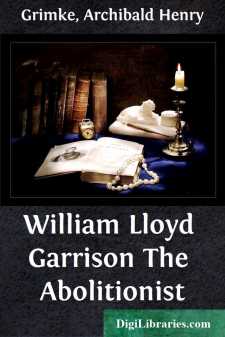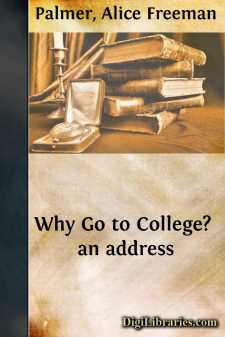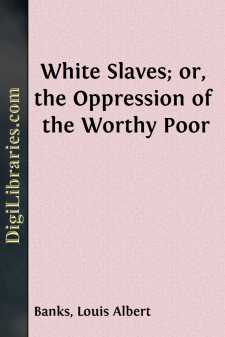Non-Classifiable
- Non-Classifiable 1768
Non-Classifiable Books
Sort by:
by:
Walter Runciman
INTRODUCTORY It was a bad day for Spain when Philip allowed the "Holy Office" to throw Thomas Seeley, the Bristol merchant, into a dungeon for knocking down a Spaniard who had uttered foul slanders against the Virgin Monarch of England. Philip did not heed the petition of the patriot's wife, of which he must have been cognisant. Elizabeth refused the commission Dorothy Seeley petitioned...
more...
by:
George Hodges
A PURITAN BOYHOOD: WANSTEAD CHURCH AND CHIGWELL SCHOOL The mother of William Penn came from Rotterdam, in Holland. She was the daughter of John Jasper, a merchant of that city. The lively Mr. Pepys, who met her in 1664, when William was twenty years of age, describes her as a "fat, short, old Dutchwoman," and says that she was "mighty homely." He records a tattling neighbor's...
more...
"Help came but slowly" to the reformer. With a single instrument he had stirred the nation, as no other man had done, on the slavery question. He had thrown the South into widespread excitement, and thawed the apathy of the North into widespread attention. He had won an almost instant hearing for his cause. But he knew that this was not enough. Effective as he had shown the weapon of the press...
more...
THE HISTORY OF THE APPLE-TREE. It is remarkable how closely the history of the Apple-tree is connected with that of man. The geologist tells us that the order of the Rosaceae, which includes the Apple, also the true Grasses, and the Labiatae, or Mints, were introduced only a short time previous to the appearance of man on the globe. It appears that apples made a part of the food of that unknown...
more...
To a largely increasing number of young girls college doors are opening every year. Every year adds to the number of men who feel as a friend of mine, a successful lawyer in a great city, felt when in talking of the future of his four little children he said, "For the two boys it is not so serious, but I lie down at night afraid to die and leave my daughters only a bank account." Year by year,...
more...
by:
Addie Chisholm
CHAPTER I. SUFFERING. It has been said "Woman has a capacity for suffering," and during all the years of the past, in all countries and among all nations, woman has been proving this true. Since the dark day when "there stood by the cross of Jesus, his mother," and there came to that mother's heart the agony of bereavement, the human disappointment and pangs, whose torture only the...
more...
I HAVERHILL The whole valley of the Merrimac, from its source among the New Hampshire hills to where it meets the ocean at Newburyport, has been celebrated in Whittier's verse, and might well be called "Whittier-Land." But the object of these pages is to describe only that part of the valley included in Essex County, the northeastern section of Massachusetts. The border line separating New...
more...
THE WHITE SLAVES OF THE BOSTON "SWEATERS". "Hard work is good an' wholesome, past all doubt; But 'tain't so, ef the mind gits tuckered out." —JAMES RUSSELL LOWELL: Biglow Papers. A wise man of the old time, after a tour of observation, came home to say, "So I returned, and considered all the oppressions that are done under the sun: and behold the tears of...
more...
WHISTLER STORIES The studios of Chelsea are full of Whistler anecdotes. One tells of a female model to whom he owed some fifteen shillings for sittings. She was a Philistine of the Philistines who knew nothing of her patron's fame and was in no way impressed with his work. One day she told another artist that she had been sitting to a little Frenchman called Whistler, who jumped about his studio...
more...
FOREWORD Once upon a time as four blind men sat by the roadside they heard the tramp of an elephant’s feet, and said one to another, “Here comes an elephant; now we shall know what he is like.” The first blind man put out his hand and touched the elephant’s broad side. The second took hold of a leg. The third grasped a tusk, and the fourth clutched the animal’s tail. “Now do you know what...
more...











